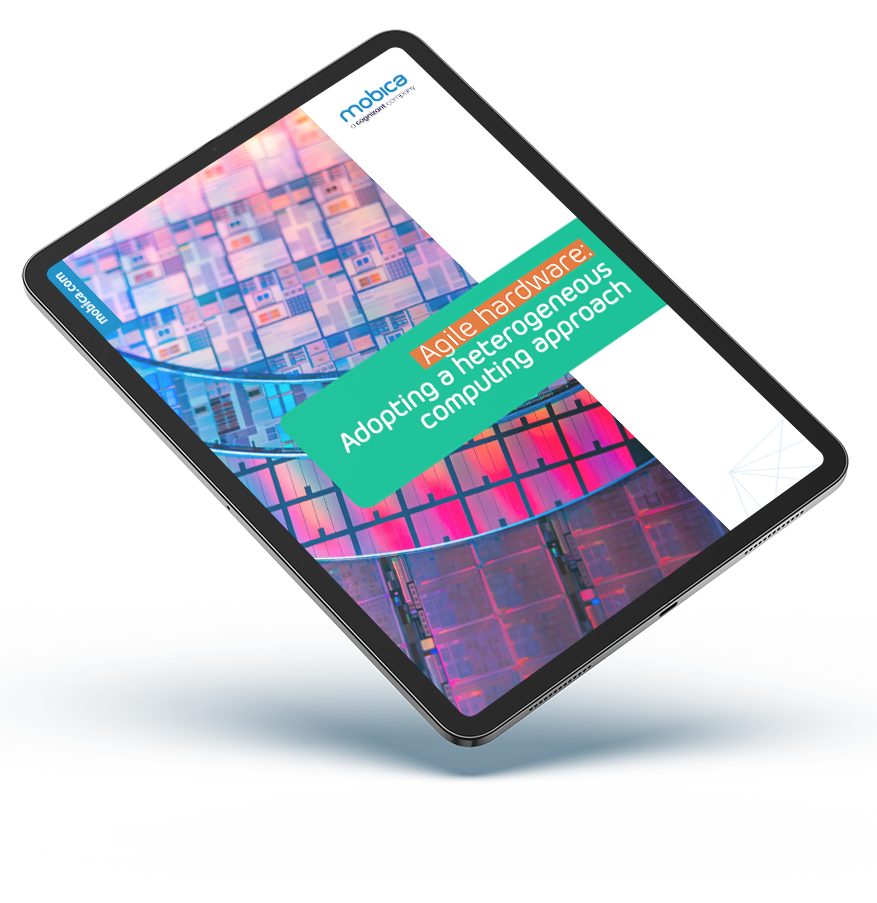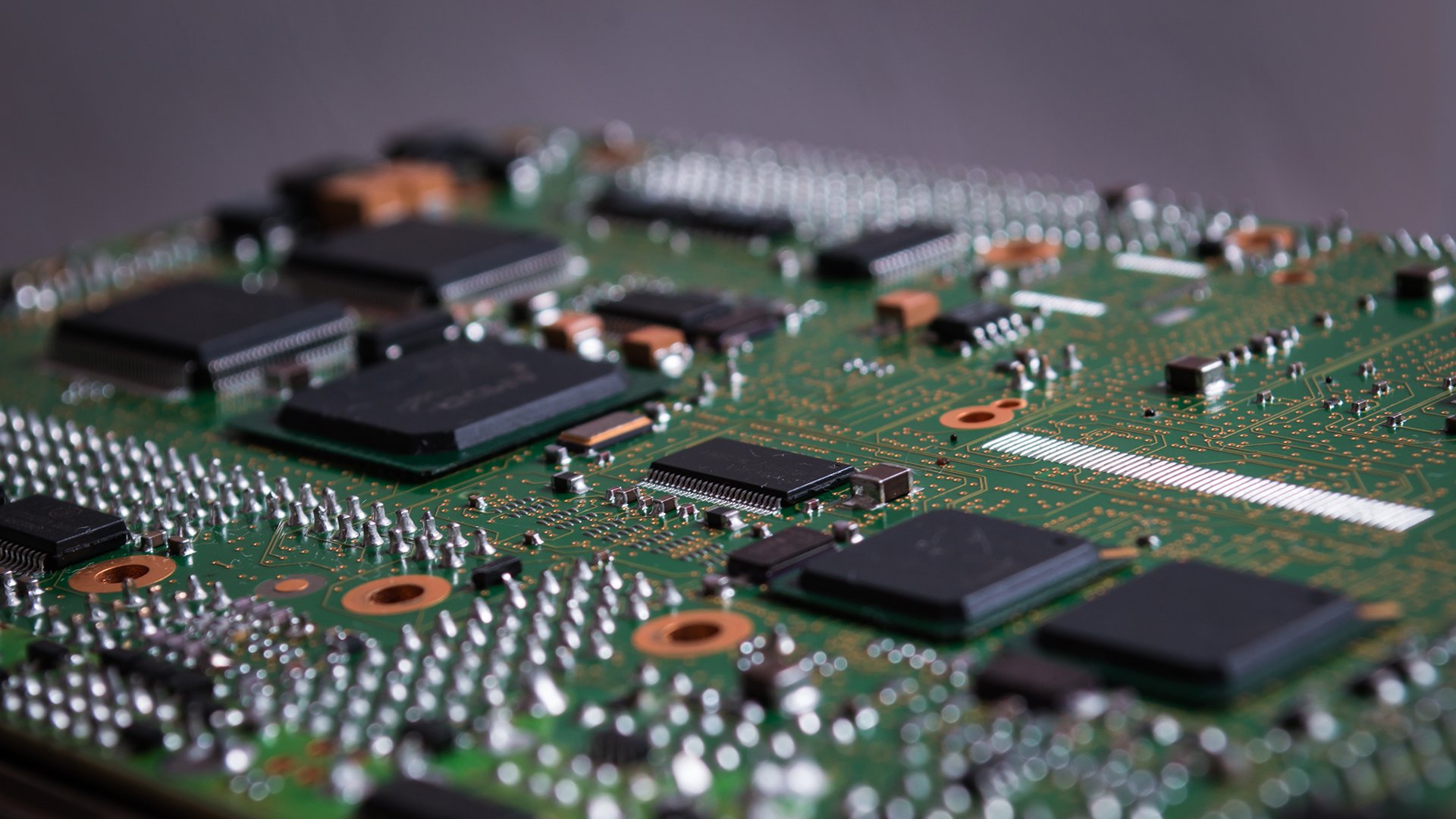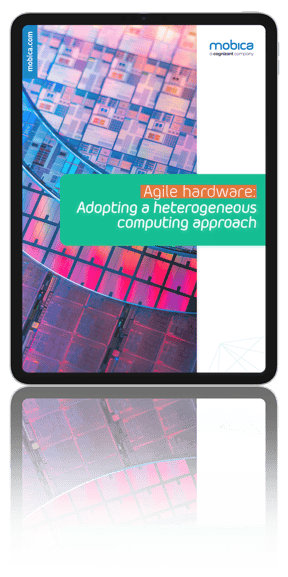Agile Hardware
Adopting a heterogeneous
computing approach_

After 50 years of driving semiconductor economics, the underlying principles guiding the semiconductor industry are changing.
To secure a competitive advantage, agile hardware is needed. But how can hardware, once it’s built, be agile?
Enter heterogeneous computing. Agile hardware is essentially a system that’s flexible to the computational demands and requirements placed on it - a heterogeneous computing approach can help you achieve this.
But how do you maximise performance from both a hardware and software perspective with this approach?

The benefits of heterogeneous computing_
In our free new E-Guide, we answer the following questions for you:
- What is heterogeneous computing, and how can it improve your hardware’s agility?
- Why is this particularly pertinent as we move closer to edge computing?
- How can heterogeneous computing overcome the ‘trilemma tradeoff’ of flexibility, performance and cost?
- What opportunities this approach provides for sectors like automotive and data centres?
- What cost efficiencies can a heterogeneous system on chip (SoC) deliver?
- What critical questions do you need to ask when undertaking a heterogeneous computing project?
- How do you define the right hardware solution?
- What key considerations do you need to take into account for a successful software platform?
Partnering with Imagination Technologies_
To add further knowledge and value around this issue, Mobica is thrilled to welcome Imagination Technologies as a trusted contributor to this new e-guide.
Responsible for licensing embedded graphics, vision and AI, and multi-standard communications SoC IP cores that power some of the world’s most iconic devices, Imagination Technologies has plenty of experience and insight around this topic.

“With the demands placed on systems steadily growing, heterogeneous computing offers a means of accelerating computing speed, reducing the time it takes to complete a task. By delegating different workloads to specialised processors that are suited for a diverse range of purposes, performance can be greatly optimised and energy efficiency significantly improved. Particularly for AI and deep learning applications, this approach can offer real benefits that many are still to take advantage of. We were delighted to be asked to contribute to this new e-guide from Mobica, which offers clarity and insights around the potential that heterogeneous computing holds.”
Trina Watt - VP of Product Marketing at Imagination Technologies

Extracts_
Robert McKenzie, Silicon Sector Director at Mobica
“To realise improvements in compute performance going forward, a fundamental change is required. Carbon nanotubes offer one potential solution, but these are long-term initiatives which are still some time away. In order to find new ways to improve system performance, we need to turn to new architectures, such as heterogeneous computing.”
“When it comes to heterogeneous SoCs, there are real gains to be made from custom-made chip designs. Not only do they ensure that systems are tailored to an organisation’s specific application requirements and provide more control when integrating hardware and software, but they can deliver greater performance capabilities and cost efficiencies too.
Download the E-Guide NowContributors_

Robert McKenzie
Semiconductor Sector Director at Mobica
Robert has primarily spent his career as a consultant and advisor to board level executives, guiding new product releases and supporting organisations transitioning to new digital landscapes. He won a scholarship to study for a B.Sc in Information Technology from Texas Instruments, has an MBA from Imperial College, led the implementation of Xerox’s Internet strategy for all markets outside the USA in the 90s, and led the technology division at SAIC (later LEIDOS). He joined Mobica in 2021, responsible for delivering solutions and products for silicon and semiconductor customers.

Andrew Gould
Chief Engineer at Mobica
Excited by the opportunities of making technology more mobile, Andy Gould is an engineering leader with a Masters in Electronics and a wealth of experience across the IoT stack, from early mobile network infrastructure to mobile handsets, automotive telemetry and a variety of embedded devices. Working with teams of experts, Andy helps customers take their projects from early concept through to delivery, utilising the latest technologies to bring the physical and digital worlds together.
Agile Hardware: Adopting a Heterogeneous Computing Approach
Simply fill in your details to download the free E-Guide_
Learn how to maximise performance with agile hardware and heterogeneous computing.
